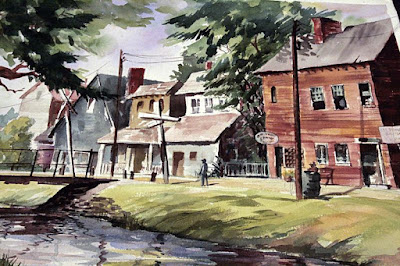Text Analysis prompt
Provide
a text analysis, relying on close reading, and focussed
on the literary and cultural aspects that you find more relevant. Write in
every other line and no more than 3 pages.
Suggested topics: theme(s) and structure; importance of
the text within the context of the author’s work and time; subject of the
enunciation; point of view and effect upon the reader/addressee; rhetoric and
linguistic devices and language tropes (descriptive or lyric manner, figures of
speech, symbolism, innovation / surprising markers, deictics, collocations, or
pattern traces within the author’s work); intertextuality with texts studied in
this class or others.
Model, based on "Slavery's Pleasant Homes" from “The Fatal Hour” to “bretheren of the South”
This excerpt from Lydia Maria
Child’s “Slavery Pleasant Homes” presents us with the conclusion of the short
story, where the myth of the “peculiar institituion” of slavery as extended
family is debunked. It can be divided in two parts, one that is simulaneously a
description of a slave hanging (a tableau
of an era, gruesome as it is) and the narrative’s final twist, and a second
one concerning the newspapers’ later reports of the events.
The first paragraph starts by
describing the gathering for the “fatal hour”. The second and third sentence
thematize, respectively, “the planters” and the “slaves”, the two kinds of
population gathered to witness the hanging. Though both come “from miles
around,” a repetition emphasizing the cultural centrality of this event in
antebellum America, they are there for opposite reasons. In a curious
inversion, the first are placed in the category of beasts – the metaphor
“fierceness of tigers” resonates with a previous use of the adjective “wild” to
classify the slavewoners, and contrasts with “the trembling victim,” the slave.
Diffidence and frailty are connoted with the latter, through the simile “shook
like a leaf” (identifying the character Mars with the tree he is supposed to
hang in), or the collocation “the shivering wretch”, where “v” and “w”
alternate with “r” in an alliteration that brings to or senses the victim’s
wriggling movements. Mars’s fright is somewhat uncanny. On the one hand it calls
for gratification on the part of the reader that has been led to dislike the character,
hitherto ressembling the prototype of conspiracy and envy, Iago in
Shakespeare’s Othello. On the other
hand, the opinionated narrator’s moral condemnation of the “awful punishment”
provokes revulsion at his subhuman treatment. It is as if Mars was being
punished by viler people than himself — whites such as the likely implied
readers of the story, at the time of publication —, a sentiment that seeps in
especially when the “nobler soul” (see paragraph 3) of George shines,
sacrificing himself for his “enemy”. Unlike Mars, quarrelsome but weaker than
his namesake, George wins over cowardice, and the interior monologue where he
struggles with his consciousness suggests that there are things worse than
death: “they can do no more than hang me”. The third paragraph, starting with
the negative phrase “No voice” undelines George’s isolation, and contains
moreover a gradation of cruel ats, “kicked; and cursed him; and hung up,”
whereby George, too, is debased to a non-human, animal-like condition, “like a
dog or a wolf.”
The fourth
paragraph inserts a piece of journalism that highlights the hybridity of
fiction and non-fiction (namely the documental piece) in this short story. It
also repeats the trope of devilry and hell present throughout the short story,
with the collocation “the black demon” stressing the public opinion’s
unfairness towards the victimized slave. The fifth paragraph is particularly
poignant because it exposes, through the verb “copied”, at a time where the
animosity between the states was beginning to rise, the fact that the attitude
towards slavery was not that different from both sides. Whatever the papers
cited, they are clearly anti-abolitionist, and vent an uncomfortable solidarity
with “our brethren of the South.”
By
stressing the indifference towards such a brutal episode of punsihment as the
one the reader was made to witness from the inside, the concluding lines of the
short story arouse an anger that most likely could lead to rising to action.
This short story by Lydia Maria Child is, therefore, a remarkable example of
how fiction can be, contrary to Edgar Allan Poe’s judgement, a moralizing
instrument without losing sight of the arrangement of incidents towards an
effect on the reader.


Comentários
Postar um comentário